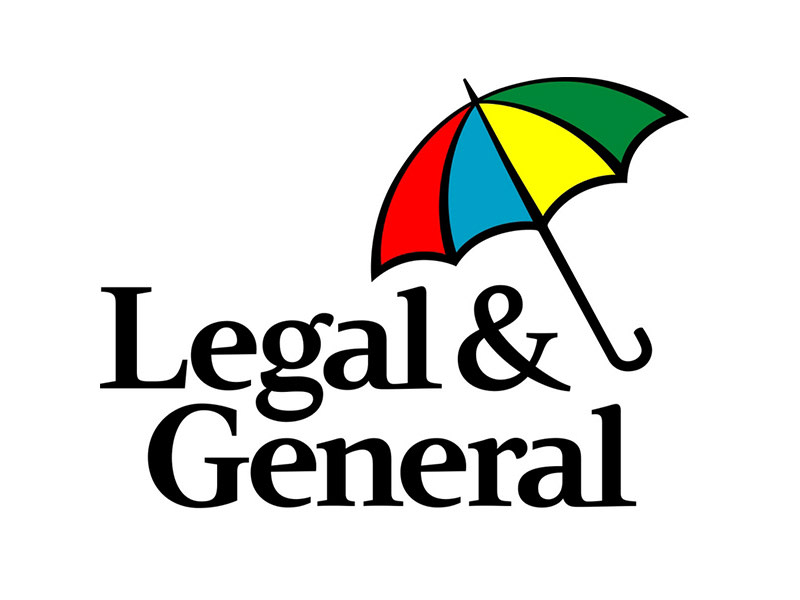Legal & General is one of the UK’s leading providers of passive funds
We view this fund as a great option for accessing the whole UK market
It’s one of the lowest cost funds tracking the FTSE All-Share Index
This fund currently features on our Wealth Shortlist of funds chosen by our analysts for their long-term performance potential
How it fits in a portfolio
The Legal & General UK Index fund provides investors with broad exposure to the UK market. It’s a low cost way to track the FTSE All-Share Index, which covers 98% of the UK’s total market value. The companies in the index vary widely in terms of their size and the sectors in which they operate.
An index tracker fund is one of the simplest ways to invest and we think this fund could be a great low-cost starting point for an investment portfolio aiming to deliver long-term growth. A broad UK tracker fund could help diversify a portfolio that has exposure to other regions around the globe such as Asia or the US.
Manager
Legal & General has been running index tracker funds for over 30 years and is one of the largest providers of index funds in the UK. That means it’s got the resources and expertise to track indices as closely as possible, and the scale to keep charges to a minimum.
Each index fund at Legal & General has a primary and secondary manager, though in practice the team as a whole helps to manage each fund. Jason Forster is responsible for UK fund management and is the primary manager for this fund. He previously worked on the firm’s index fund management systems before becoming a fund manager in 2002. Konstantins Golovnovs is the secondary manager for this fund. He joined Legal & General’s graduate scheme in 2010 and worked his way up to become a fund manager.
Process
This fund tracks the performance of the FTSE All-Share Index. It aims to invest in every company in the index and in the same proportion. This is known as full replication and helps the fund closely match the returns of the benchmark.
The fund is made up of around 570 holdings, but the top ten companies account for nearly 40% of the portfolio. AstraZeneca and Shell are currently the largest companies in the fund, making up 7.0% and 6.8% respectively. The fund also invests in smaller companies which can increase risk.
In any index tracker fund, factors like withholding taxes, dealing commissions and spreads, and the cost of running the fund all drag on performance. The team try to keep turnover in the portfolio, the frequency at which shares are bought and sold, as low as possible to reduce some of these costs.
Legal & General cross trades shares internally across all its own funds when there’s an index rebalance. This provides a saving on Stamp Duty, which is a government tax that’s paid on the purchase of UK listed shares. Trading efficiently like this helps to reduce the tracking difference between the fund and the index.
Legal & General is a conservative tracker fund manager. For example, it doesn’t lend the investments in its index funds like some other companies do.
Culture
Legal & General has developed its passive fund range over the last three decades. The company manages around £500bn in tracker funds, allowing it to offer a wide range of index-tracking options.
Legal & General has built a team of experienced passive fund specialists and is innovative too. If an index doesn’t exist for a sector the team would like to track, they’ll often work with index providers to create one so they can track it.
The team running this fund works closely with various risk departments across the business. We believe this provides support and adds challenge where appropriate.
Employees are also encouraged to participate in Legal & General’s sharesave scheme which should encourage them to be more engaged with the growth of the company. In addition, a portion of portfolio managers’ bonuses are invested into the funds they manage. By doing this, their interests are further aligned with the investors in the fund.
ESG Integration
Legal & General Investment Management (LGIM) is predominantly a passive investor, but we are impressed with the extent to which they have woven ESG into their culture. Being a mostly passive fund house hasn’t stopped them being innovative when it comes to ESG. In May 2019, the firm launched its ‘Future World’ range of funds.
These funds track indices that increase investments in companies that score well on a variety of ESG criteria – from the level of carbon emissions generated, to the number of women on the board and the quality of disclosure on executive pay. They also reduce exposure to companies that score poorly on these measures. The Future World range incorporates LGIM’s ‘Climate Impact Pledge’, which is their commitment to assess and engage with the world’s largest companies on how well they manage the implications of climate change. Engagement is carried out with reference to comprehensive ‘sector guides’, which outline best practice and LGIM’s expectations for companies in each key sector. Companies that consistently show a lack of awareness of climate change, and do not respond positively to engagement, are sold from the Future World funds. The funds also adopt a decarbonisation pathway. This means they’re managed to achieve at least a 7% reduction in carbon emissions per year until 2050.
In 2019, LGIM established its Global Research and Engagement Platform, which brings together representatives from the investment and stewardship teams, in order to unify their engagement efforts. Engagement is conducted in line with the firm’s comprehensive engagement policy. A detailed description of the firm’s engagement and voting activity (including case studies) is available in its annual Active Ownership report. Quarterly Engagement reports are also available.
LGIM’s Stewardship team is responsible for exercising voting rights globally, both for LGIM’s active and index funds. Voting decisions are publicly available through a tool which allows a user to search for any company to find out how LGIM voted, and a detailed rationale is provided for votes against management and abstentions.
Investors should note that, as of the end of October 2024, this fund invests 18.36% in companies involved with the extraction of oil, gas or coal. This could leave the fund vulnerable to fluctuations in commodity prices, regulatory changes aimed at reducing carbon emissions and potential shifts in consumer preferences towards sustainable alternatives. However, the fund’s composition represents the exposure of the FTSE All-Share Index meaning the team has no control over the companies included in this passive fund.
Cost
The fund has an ongoing annual fund charge of 0.10%, but a discount of 0.06% is available for HL investors, which reduces the charge to 0.04%. We believe this is excellent value when compared with other UK tracker funds. Our platform charge of up to 0.45% per annum also applies, except in the Junior ISA, where no platform charge applies.
Part of the fund discount is provided through a loyalty bonus, which might be subject to tax if held outside of an ISA or SIPP.
Performance
Over the last 10 years, the fund has tracked the FTSE All-Share Index closely, rising 80.70%* compared to 81.69% for the index. As you would expect from an index tracker fund, it’s fallen behind the benchmark over the long term because of the costs involved in running the fund. However, the tools used by the managers have helped to keep performance as tight to the index as possible. Remember, past performance isn’t a guide to future returns.
The FTSE All-Share Index currently has significant exposure to sectors such as financials, consumer staples and industrials. Therefore, these sectors are likely to have the biggest impact on the fund’s performance, though the makeup of any index can change over time.
Over the last 12 months, the fund gained 15.48% versus 15.56% for the index. Falling inflation and the anticipation of interest rate cuts throughout the year benefitted smaller companies, which performed better than larger companies during this time. However, as these companies make up a smaller portion of the index they have less impact on the fund’s overall performance.
With inflation closer to the 2% target, the Bank of England (BoE) lowered interest rates in August after holding rates at a 16 year high for a full year. Since then, the BoE have continued to cut interest rates although it’s becoming less clear how far these rate cuts will go, and rates could stay higher, and for longer, than initially expected.
Higher interest rates have been a tailwind for financial companies, like banks, who profit from the increased cost of borrowing. The financials sector contributed the most to the fund’s performance over the year and is a sector that could benefit from rates staying higher for longer. Whereas oil & gas was the worst performing sector due to volatile energy prices and a slowdown in demand, particularly from China.
Given Legal & General’s size, experience and expertise running index tracker funds, we expect the fund to continue to track the index well in the future, though there are no guarantees.
Annual performance growth
Oct 19 – Oct 20 | Oct 20 – Oct 21 | Oct 21 – Oct 22 | Oct 22 – Oct 23 | Oct 23 – Oct 24 | |
|---|---|---|---|---|---|
Legal & General UK Index | -18.64% | 34.28% | -3.03% | 6.84% | 15.48% |
FTSE All-Share | -18.87% | 35.48% | -3.12% | 6.93% | 15.56% |


